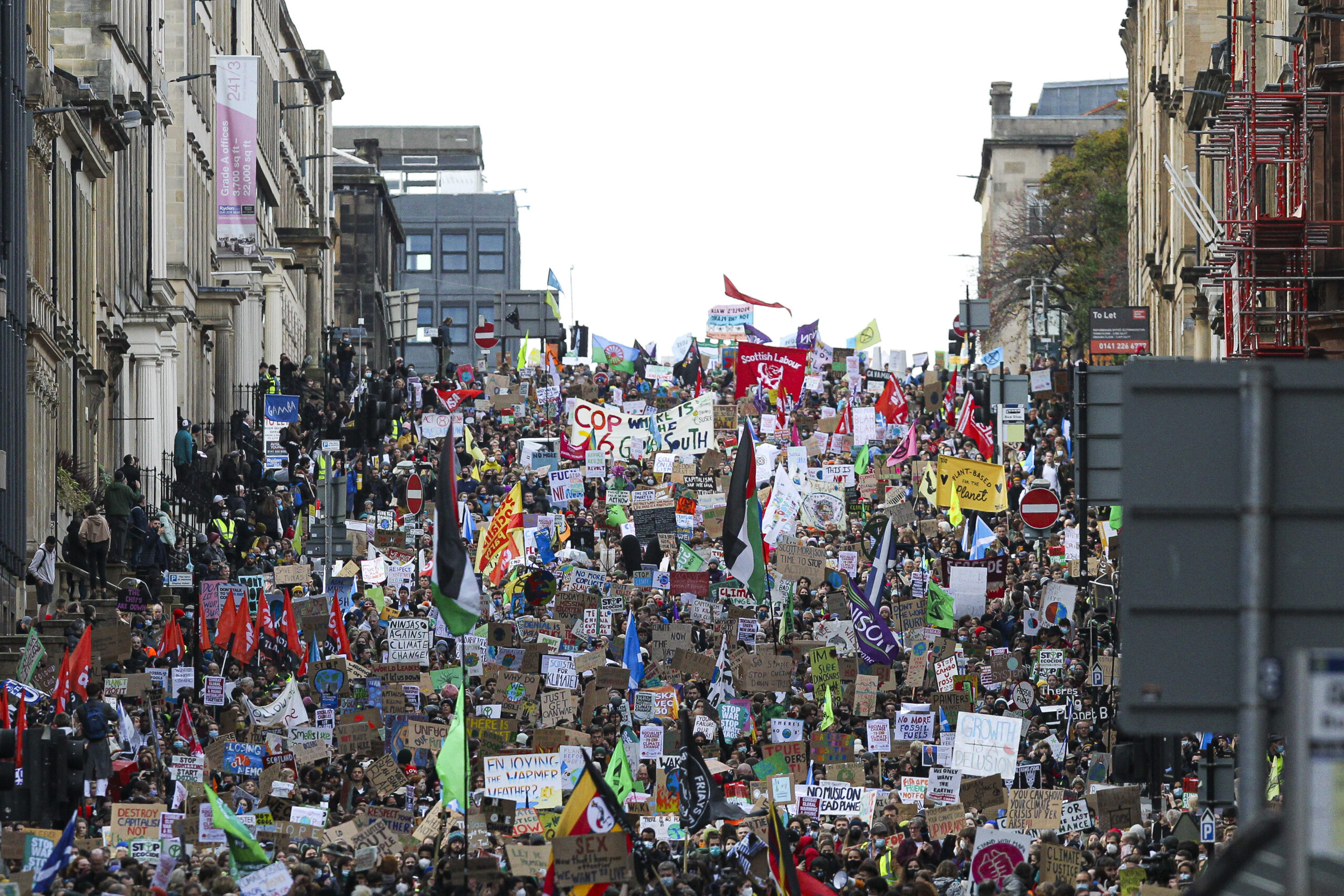What’s the Point of Mobilising Around COP?
Greta’s not going - so why should any of the rest of us?
by Tatiana Garavito & Nathan Thanki
9 November 2022

Every time the UN’s annual climate change summit comes around, the same question comes up in movement spaces worldwide: is COP an important moment for activists to mobilise around?
For years, movements have tried in different ways to urge world leaders gathered for the conference to take action to address the climate and ecological crisis – and yet very little seems to change. Instead, time and again, host countries have used COP to greenwash their environmental records while restricting civil society participation.
This was true in Glasgow in 2021, and is even more true this year in Sharm el Sheikh. Under Abdel Fatah al-Sisi, who seized power in a military coup in 2013, Egypt is making a big show of its (questionable) climate credentials while locking up activists and banning research.
It’s little wonder, then, that climate activists like Greta Thunberg have announced they won’t be attending the summit. But even in less extreme circumstances, movement organisations always bicker about strategy when it comes to COP. That’s because they’re often operating with very different theories of change.
The Ayni Institute posits that there are five theories of change: 1) the ‘inside game’, i.e. working within existing structures to achieve the best possible policy outcomes, 2) mass mobilisation, 3) personal transformation, 4) structured organising, and 5) alternatives. These theories of change have pros and cons, but they are all important when understanding and working to transform the very complex systems in which we live.
People operating exclusively or primarily with one theory of change often view the efforts of those operating with another as pointless at best and counter-productive at worst. This is certainly the case with COP. Activists who engage with COP are ultimately engaging in the ‘inside game’ of appealing to state power, which invites criticism on the grounds of working with their enemies (“Those in the inside game always end up getting corrupted! We need to reject the game altogether!”). In turn, activists who engage with COP criticise those who want to “reject the game altogether” as being idealistic and unstrategic.
These criticisms often respond to a recognition of class, race and gender dynamics that are worth understanding. However, it’s important to remember that in order to build power, we need a range of strategies. The idea of ‘movement ecology’ is useful here, reminding us that for strength and survival, we need diversity and mutualism.
It’s important to organise in and around COP for multiple reasons. First, the climate crisis is a global crisis. It therefore demands a global response at the level of all theories of change, including the ‘inside game’ approach. One example of essential work that takes this approach is that of the Third World Network, which has, amongst other things, produced a decades-long record of the positions taken by governments from the perspective of the Global South. This record provides an important counter to the dominant narratives of the Global North, and acts as a sort of institutional memory for both civil society and negotiators.
Clearly not every individual or organisation can or should engage in this work, however, and so the majority of civil society actors try to influence COPs through mass mobilisations. Done well, these mobilisations can create a pressure which can be felt inside the negotiating halls. We saw this even in Glasgow, where mobilisations called out the British government’s push for net-zero emissions by 2030 as a tactic of both delay and greenwash. Quickly, a high level advisory group was formed to try and close loopholes which would allow countries to claim ‘net-zero’ status while increasing their atmospheric pollution.
But the problem – as we saw in Paris in 2015, for example – is that COP mobilisations often don’t have a clear, unified goal or demand. Indeed, the nature of COP makes it very hard for there to be one: it isn’t possible nor desirable to make the same demand of the richest, most polluting countries as the poorest, least polluting countries. In fact, as countries now decide their own ‘nationally determined contributions’ (NDCs) to overall emissions reduction, decentralised mobilisations targeting specific state actors is arguably more effective than, say, an A-B march in the desert.
Crucially, climate summits will continue to present an opportunity for movements to show solidarity with one another both domestically and internationally, as many are currently doing towards British-Egyptian political prisoner Alaa Abd el-Fattah. As internationalists, it’s our role to use moments such as the COP to shine a light and stand in opposition to the violence and harm the powerful create at a global scale. For while we might have suffered many losses, as Abd el-Fattah writes, we are not yet defeated.
Tatiana Garavito is an organiser and facilitator based in Ibagué, Colombia.
Nathan Thanki is a human ecologist based in Ibagué, Colombia.


